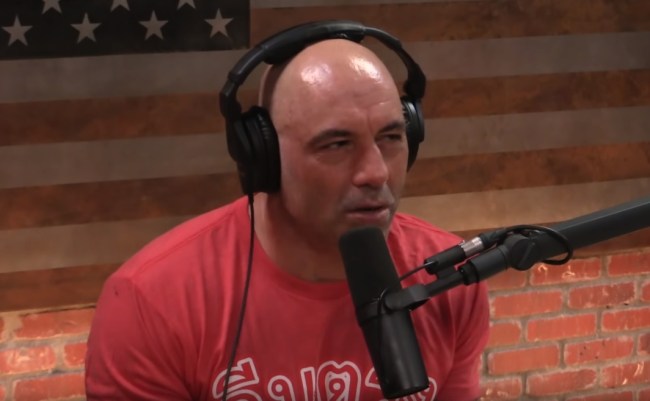In May 2010, the Joe Rogan Experience was elated to announce the acquisition of its first ever sponsor: Fleshlight, a male masturbation device. As if you didn’t already know.
At that time, the show was simply a revolving door of Rogan’s comic friends split-screened in a darkish room word vomiting into sub-par microphones. The show lacked direction, substance, and guests with a college degree (all due respect to my man Joey Diaz).
Exactly a decade later, the Joe Rogan Experience has blossomed into the most popular podcast in the world and a haven for the intellectual dark web, signing exclusively to Spotify for a ground-breaking $100 million.
While critics like the National Review’s Theodore Kupfer claim that the podcast is hosted by “a weed-smoking DMT-obsessive whose most cherished political cause is the quest to end male circumcision” and has sadly become “one of the last bastions for civil discussion in contemporary America,” the numbers indicate that there is an insatiable hunger for Joe Rogan content. It has been estimated that the JRE receives over 200 million monthly listens and views.
On his recent podcast with Jon Stewart, the former Daily Show host asked his fellow comedian about his transition from “conquering the stage” to long-form discussions with neuroscientists, activists, and MMA fighters, to name a few.
(47:25 mark in the video below.)
Rogan’s response:
“One of the reasons the early episodes sucked, I didn’t know what I was doing, and I didn’t think anyone was listening. It was just for fun. There was a lot of just hanging out with comics,” he said.
The 52-year-old could be alluding to the flippancy he treated a 2011 Joey Diaz admission to coercing female comedians for sexual favors in return for stage time. This earned Rogan a slew of critical think-pieces calling into question the host’s character and his impact on society.
https://twitter.com/ChemicalMishap/status/1273159524791259137?s=20
Rogan continued by revealing that viewing podcasting as a skill and a delicate balance was essential in his growth as a host.
“Along the way, I started interviewing actual interesting people, and talking to them, and having conversations. There is a place for comedy. But I make a really big point to never force comedy where it does not belong. I also do that with the UFC, when I do commentary, I’m never funny, there’s no reason to be, it’s not what my job is.
And when I’m doing a conversation with someone, I just try to talk. I don’t try to be a comic. I’m a human. I want to know what they’re talking about, and I want to get them to expand on their ideas and I want to be engaged.
I had to learn how to do this thing that I didn’t think was a skill. I thought being on the radio or podcasting was just talking. No, you’re talking in a way in which people want to listen. You’re making it entertaining, and keeping your ego in check. You’re moving the conversation along, without being overbearing. You’re not letting people ramble too much. You gotta figure out how to juice things up, and push them, and massage them.
It’s a skill and I didn’t think it was a skill. That’s one of the reasons my early episodes sucked so bad, there wasn’t even consideration to the fact that people were listening.”
If you’re a believer in the 10,000 hour mastering rule, Joe Rogan is more evidence of it. As of June 28, Rogan has hosted 1,498 episodes of his podcast ranging from 1-5 hours each. And with another $100 million incentive, he ain’t slowing down.
